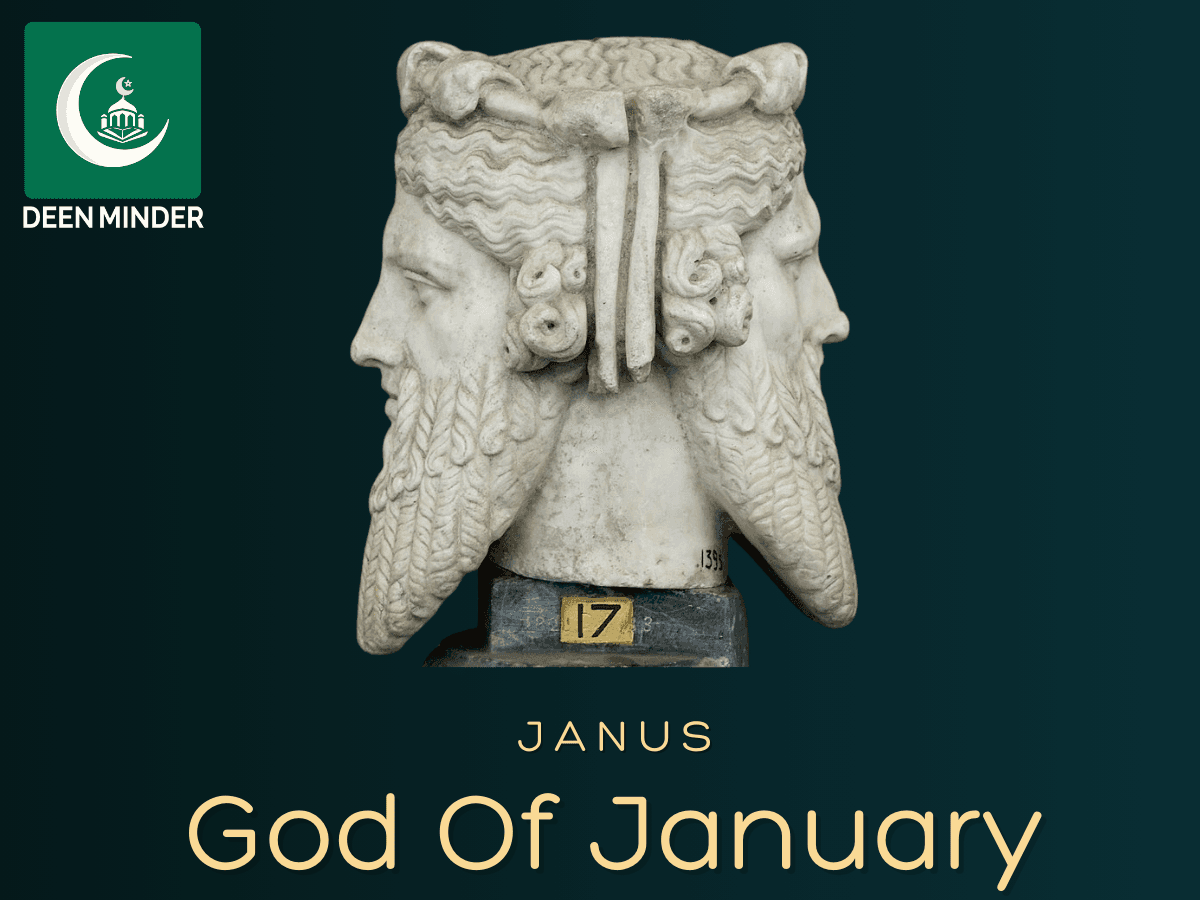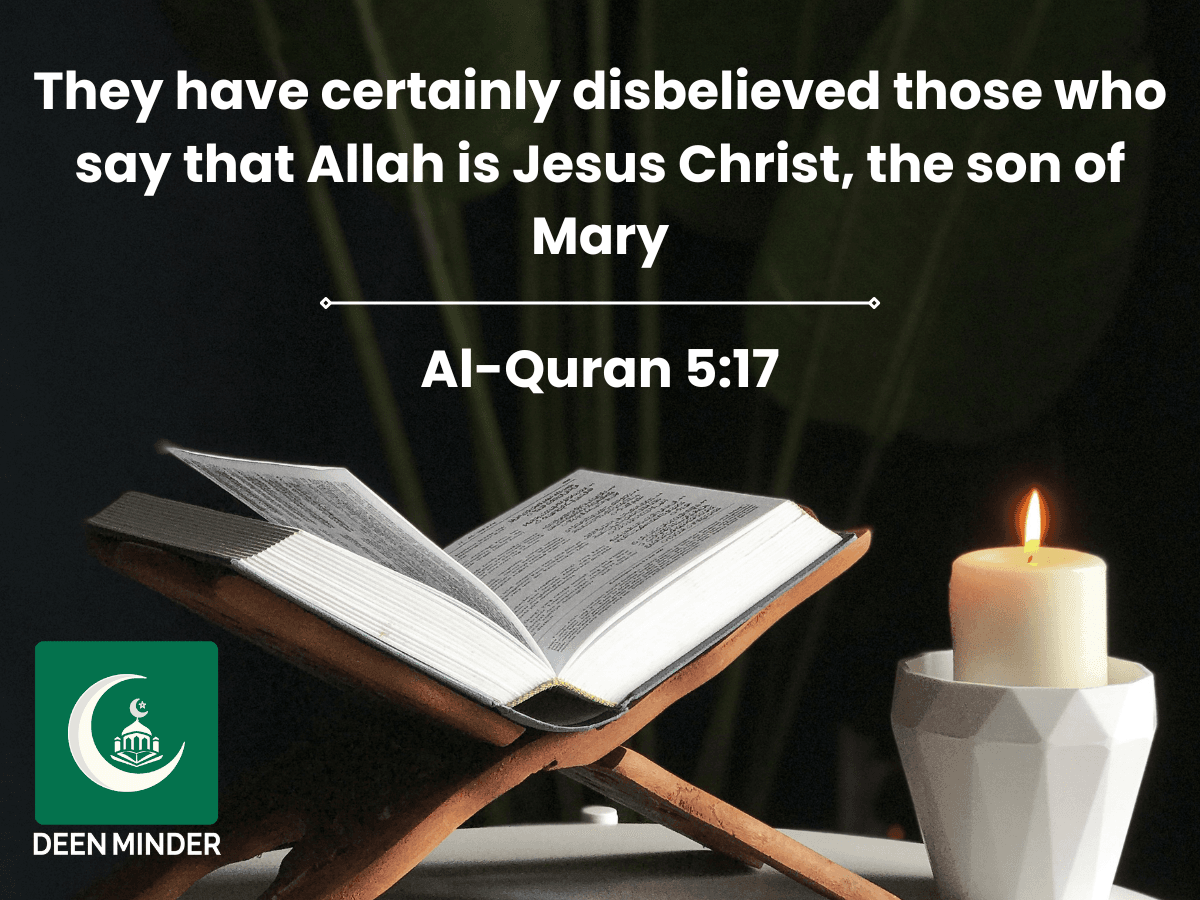All praise belongs to Allah and may His peace and blessings be upon our prophet Muhammad. People are curious to know the reason why Muslims don’t celebrate New Year Festival and we are going to discuss the root of the matter here today in shaa Allah.
At the beginning of time, there wasn’t anything like the New Year celebration until the time of ancient Rome when the first month of the year, January, was named after Janus. The month signified new beginnings, making it a time to honor Janus. Romans would offer sacrifices, food, and wine to Janus in hopes of securing a prosperous and peaceful year ahead.
Who Was Janus where the first month of “January” come from?
Janus, in Roman mythology, was a unique deity that they believed as the god of beginnings, endings, transitions, and dualities. The god has two faces and this two-faced representation symbolizes his ability to see both the past and the future: one looking to the past and the other to the future.
Romans believed that Janus was present at the beginning of the world and that he governed over all transitions. This included not only physical doorways but also the abstract concepts of beginnings and endings. Therefore, he was invoked at the start of any new venture they wanted to start, like the beginning of the year or the commencement of a journey or new project.
Janus was an integral part of Roman life. He was invoked at the start of any endeavor individually, whether at the beginning of a business, a project, a wedding, a military campaign, the construction of a building, or any other thing we might need Almighty God’s intercession for. Romans believed that Janus opened the doors to new opportunities and closed them to past troubles, ensuring smooth transitions.
I hope you are able to see how much they revered the Janus god and was given the attributes of our Almighty Allah. Even without talking more about this, you will be able to see a clear reason why Muslims don’t celebrate New Year Festival because this is called SHIRK. You can read about the major sins in Islam here.
Don’t forget to come back to read the pieces of evidence from the Quran and Sunnah that authenticate the prohibition of Muslims from celebrating the New Year Festival.
The Origin of January and the New Year
The connection between Janus and the New Year is rooted in the Roman calendar’s evolution. Initially, the Roman calendar began in March, aligning with the start of the agricultural season. However, in 713 BCE, Numa Pompilius, the second king of Rome, reformed the calendar by adding January and February. He placed January as the first month of the year, dedicating it to Janus, the god of transitions.

This symbolic positioning aligned perfectly with Janus’s role as the gatekeeper of time. The name “January” itself derives from Janus (Ianuarius in Latin), further establishing the god’s role in marking the passage into a new year. The first day of January was seen as a time to reflect on the past year’s successes and failures while making plans and prayers for the year ahead.
New Year Celebrations in Ancient Rome
The Romans marked the New Year with customs and rituals designed to honor Janus and pray for positive achievements for the year ahead. The following are what are included in the festivals:
1. Offerings and Sacrifices
Romans began the year by offering sacrifices to Janus. Common offerings included cakes made from flour, and salt, as well as wine and honey. Lamb will be killed particularly as a sacrifice for the Janus god. These simple yet significant gifts symbolized purity and the sweetness of new beginnings. Some rituals also involved the sacrifice of lambs, emphasizing the god’s power to bring prosperity and protection.
2. Exchange of Gifts
Romans would offer sacrifices to Janus, praying for his blessings in the new year. These offerings, known as strenae (gifts of good luck), often included fruits, honey, and coins. The goal was to ensure a favorable start to the year., or tokens of good luck. The act of giving these tokens reflected the hope that the year would be filled with kindness and generosity.
3. Prayers and Festivities:
Romans would gather to pray to Janus for good fortune, prosperity, and peace in the coming year. The day was marked by public and private festivities, including feasts, music, and dancing. Public ceremonies often involved the priests, known as pontiffs, conducting elaborate rituals to honor Janus.
4. Household Ritual Celebrations
In addition to public rituals, families also celebrated the rituals within their homes. They decorated their doorways with laurel branches to invoke Janus’s protection and favor.
It is getting clearer and clearer now concerning the reason why Muslims don’t celebrate New Year festival. Making offerings and sacrifices to anyone or anything is SHIRK, and asking for blessings, favors, and praying to anyone or anything is creating a partner with Allah, the Almighty God which is highly forbidden. Allah says:
Indeed, Allah does not forgive association with Him, but He forgives what is less than that for whom He wills. And he who associates others with Allah has certainly gone far astray. (4:116)
Allah, Almighty God does not forgive the crime of associating partners with Him, anyone who does so and dies in that state without repenting from this crime will live eternally in the fire of Hell. He may forgive all other sins besides associating partners with Him for whomever He wills even if such people die committing those sins without repentance, out of His mercy and grace.
Whoever associates anything as a partner with Allah seeking blessings, favour and haveing faith in it has gone far away from the truth, as he has made the creation equal with the Creator (Allah). This is a great sin
Transition to Christian Celebrations
As the Roman Empire transitioned to Christianity in the 4th century CE, pagan practices began to wane. The Church sought to replace these traditions with Christian observances. Despite these changes, the influence of Janus lingered in cultural attitudes toward the start of the year.
During the middle ages of the Roman Empire, New Year celebrations became more closely associated with Christian traditions and observances. The church played a significant role in shaping the festivities, often incorporating elements of the older pagan customs. The New Year was often linked with the Feast of the Circumcision of Christ, observed on January 1st in the Western Christian tradition too.
Disbelief after disbelief. Shrikh after Shrikh. Both the pagans and the Christians are causing and spreading disbelief on the land (earth). One believed in a stone god and the other believed that the god is three or the god has a son and asks favor from the son and the holy spirit. Allah says:

They have certainly disbelieved those who say that Allah is Jesus Christ, the son of Mary. Say, “Then who could prevent Allah at all if He had intended to destroy Christ, the son of Mary, or his mother or everyone on the earth?” And to Allah belongs the dominion of the heavens and the earth and whatever is between them. He creates what He wills, and Allah is over all things competent. (Al-Quran 5:17)
They have certainly disbelieved who say, “Allah is the third of three.” And there is no god except one God. And if they do not desist from what they are saying, there will surely afflict the disbelievers among them a painful punishment. (Al-Quran 5:73)
Allah now later said that these people who have such beliefs are the worst creatures and He said that he will surely punish them for disbelieving in Him.
Indeed, they who disbelieved among the People of the Scripture (Christians and Jew) and the Idolators will be in the fire of Hell, abiding eternally therein. Those are the worst of creatures.
(Al-Quran 98:6)
What is now the reason why Muslims don’t celebrate New Year Festival?
The reason is because this festival is idolatry based on the origin of this festival which we have explained above. Even after the Christians hijacked the festivals from the pagans, it still remains idolatry by merely looking at the Christian’s principles and theology who are ascribing son to Allah and worshipping one of the creatures of Allah. Allah says:
Indeed to Allah, the example of the creation of Prophet Isa, Jesus is like that of Adam. He created him (Adam) from dust; then He said to him, “Be,” and he (Adam) was. (Al-Quran 3:59)
Also, creating Prophet Isa, Jesus (Peace be upon him) without having a father is easy for him. At least Prophet Isa, Jesus (Peace be upon him) has a mother, what will you now say about Prophet Adam (Peace be upon him) that has no father and mother?
This is the reason why Muslims don’t celebrate New Year Festival and we implore every Muslim to hold on to Islam tightly because it is the only one true way to salvation. We ask Allah to grant us steadfastness upon the deen, Islam, and grant us a good ending upon Isam. Aameen. You can read the pieces of evidence from Quran and Sunnah that prohibited Muslims from celebrating the New Year Festival here.








Be First to Comment